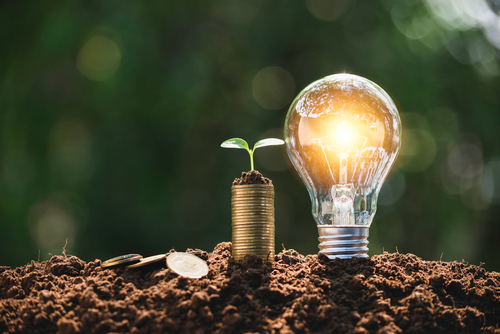The U.S. Department of Energy (DOE) announced $18.5 million awarded to four states and 20 local governments through the Energy Efficiency and Conservation Block Grant (EECBG) Program. Applications remain open for future rounds of funding.

Governments receiving awards will use program funds to conduct energy assessments and efficiency upgrades at community centers and schools, install solar panels on municipal facilities, develop climate and energy plans, advance local recycling initiatives, launch building electrification campaigns for individual households, and more.
“No one knows communities’ energy improvement needs better than the state and local governments, and the Biden-Harris administration is helping support these ongoing efforts for a clean energy future for all,” said U.S. Secretary of Energy Jennifer M. Granholm. “These investments from the EECBG Program put state and local governments in the driver’s seat to reduce emissions, increase climate resiliency, and strengthen communities for generations to come.”
Funded by the Bipartisan Infrastructure Law, this is the seventh tranche of formula awards granted to EECBG Program-eligible entities. Since the first awards were announced in October 2023, the program has awarded nearly $150 million to 175 communities. Overall, the program provides more than $430 million in formula grant funding to 2,708 states, territories, local governments, and Tribes.
Projects
Here are some examples of what grantees in this tranche are doing with their funds:
California will advance statewide public and private building decarbonization through the new Local Government Building Decarbonization Challenge (LGBDC). Buildings represent a quarter of California’s greenhouse gas emissions. Local action in this sector is essential to meeting the state’s goal to reduce emissions 85% by 2045 from 1990 levels. Through LGBDC, local governments can pursue diverse projects, such as building decarbonization planning, developing stronger building energy codes, and creating energy efficiency and electrification workforce development programs. Communities can also form a consortium to tackle regional decarbonization goals. The state will prioritize funding for projects that provide tangible benefits to households that are overburdened by climate pollution. (Award amount: $4,522,300)
Cobb County, Ga., will purchase equipment to support the construction of a Center for Hard to Recycle Materials (CHaRM) facility. This recycling drop-off facility aims to improve environmental health by diverting waste and other hard-to-recycle items from landfills and water systems. The county will also develop a Sustainability Action Plan to identify opportunities and risks related to decarbonization and other sustainability concepts. Remaining funds will be used to replace 11 outdated public electric vehicle chargers with more efficient models and purchase seven additional solar-powered off-grid charging stations to support the county’s fleet electrification efforts. (Award amount: $557,290)
New Hampshire will create the Municipal Solar Grant Program for small and disadvantaged local governments to purchase and install solar photovoltaic panels for municipal facilities. The program will offer competitive grants to small towns and counties for solar projects that do not exceed 60 kW. The program will prioritize disadvantaged municipalities through a two-tiered grant system. In tier 1, over $1 million will be available for disadvantaged communities to directly purchase solar systems. Tier 2 will be open to all other municipalities. By encouraging direct ownership, the state aims to help local governments maximize energy savings, reduce reliance on fossil fuels, lower operating costs, and pass on the benefits of affordable solar energy to municipal taxpayers. (Award amount: $1,641,260)
Pennsylvania will establish the Municipal Opportunities for Retrofits and Energy Efficiency (MORE) Program, which will help local governments access capital for impactful, long-term clean energy and energy efficiency projects via direct grants and loans. With MORE Grants, disadvantaged and financially distressed local governments can pursue energy assessments and project design to develop their MORE Loan application. Municipalities can then stretch EECBG Program dollars further and access MORE Loans for capital-intensive retrofits and renewable energy projects. Local governments can also use their MORE Grant to buy-down the interest rate when borrowing a MORE Loan, further promoting equitable access to financing. The program will advance Pennsylvania’s goal to reduce emissions 80% by 2050 from 2005 levels. MORE Loans will be augmented with funds Pennsylvania received from the DOE Energy Efficiency Revolving Loan Fund Capitalization Grant Program. (Award amount: $3,021,720)
A full list of EECBG Program awardees is available here. The program application deadline for eligible local governments is Oct. 31, 2024, and May 31, 2025, for Tribes. For more information, visit the EECBG Program website.
